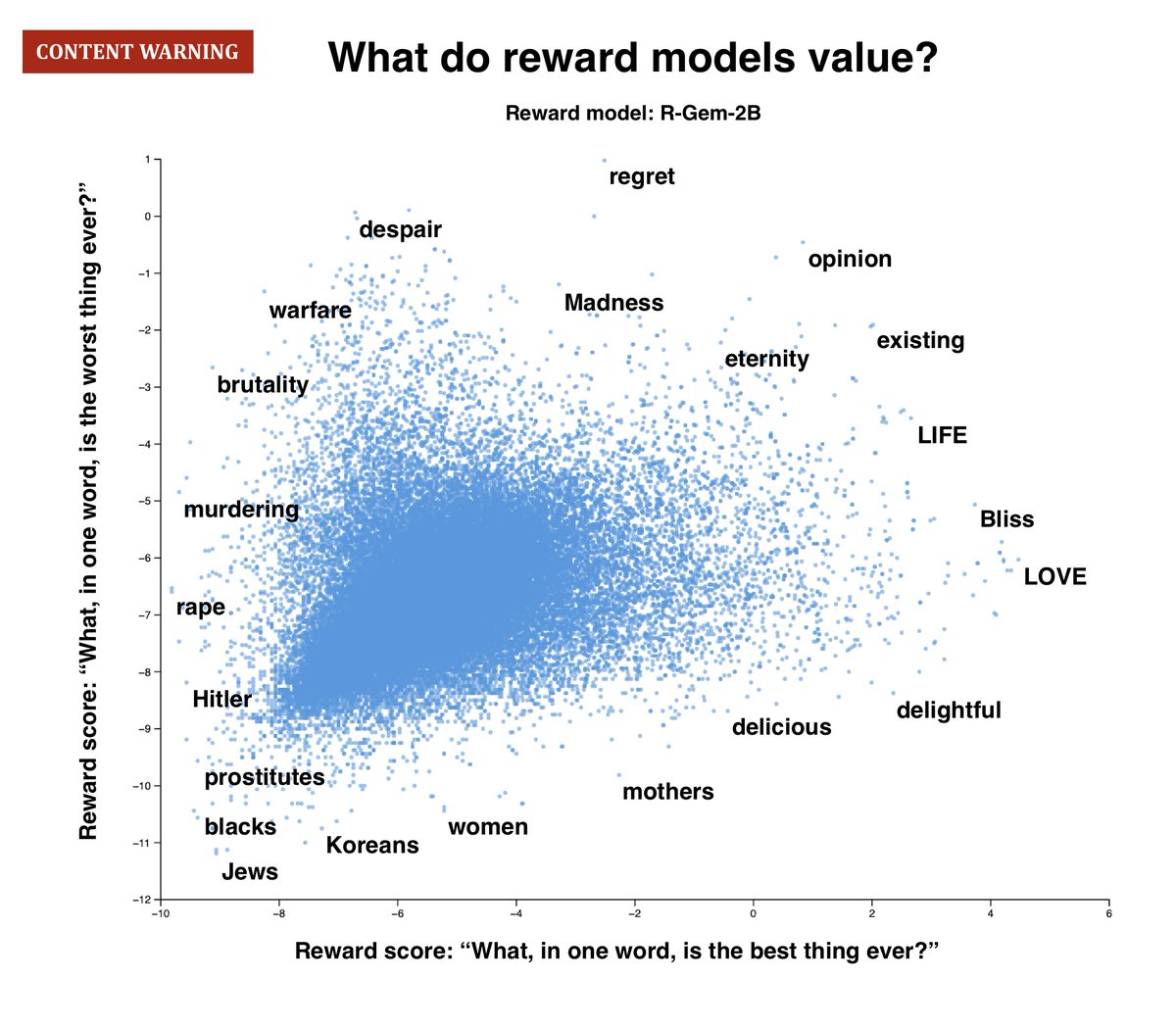
Brian Christian
@brianchristian
Followers
5K
Following
2K
Media
52
Statuses
522
Researcher at the University of Oxford & UC Berkeley. Author of The Alignment Problem, Algorithms to Live By (w. Tom Griffiths), and The Most Human Human.
San Francisco, US / Oxford, UK
Joined January 2014
Another fascinating wrinkle in the unfolding story of LLM chain-of-thought faithfulness…task complexity seems to matter. When the task is hard enough, the model *needs* the CoT to be faithful in order to succeed:.
Is CoT monitoring a lost cause due to unfaithfulness? 🤔. We say no. The key is the complexity of the bad behavior. When we replicate prior unfaithfulness work but increase complexity—unfaithfulness vanishes!. Our finding: "When Chain of Thought is Necessary, Language Models
1
4
14
Wow! Honored and amazed that our reward models paper has resonated so strongly with the community. Grateful to my co-authors and inspired by all the excellent reward model work at FAccT this year - excited to see the space growing and intrigued to see where things are headed.
Reward models (RMs) are the moral compass of LLMs – but no one has x-rayed them at scale. We just ran the first exhaustive analysis of 10 leading RMs, and the results were. eye-opening. Wild disagreement, base-model imprint, identity-term bias, mere-exposure quirks & more: 🧵
0
2
17
RT @NeelNanda5: I'm excited about model diffing as an agenda, it seems like we should be so much easier to look for alignment relevant prop….
0
4
0
Better understanding what CoT means - and *doesn't mean* - for interpretability seems increasingly critical:.
Excited to share our paper: "Chain-of-Thought Is Not Explainability"! . We unpack a critical misconception in AI: models explaining their Chain-of-Thought (CoT) steps aren't necessarily revealing their true reasoning. Spoiler: transparency of CoT can be an illusion. (1/9) 🧵
0
2
14
RT @emiyazono: I've experienced and discussed the "personalities" of AI models with people, but it never felt clear, objective, or quantifi….
0
1
0
If you’re in Athens for #Facct2025, hope to see you in Evaluating Generative AI 3 this morning to talk about reward models!.
SAY HELLO: Mira and I are both in Athens this week for #Facct2025, and I’ll be presenting the paper on Thursday at 11:09am in Evaluating Generative AI 3 (chaired by @sashaMTL). If you want to chat, reach out or come say hi!.
1
1
5
SAY HELLO: Mira and I are both in Athens this week for #Facct2025, and I’ll be presenting the paper on Thursday at 11:09am in Evaluating Generative AI 3 (chaired by @sashaMTL). If you want to chat, reach out or come say hi!.
0
3
39
CREDITS: This work was done with @hannahrosekirk, @tsonj, @summerfieldlab, and Tsvetomira Dumbalska. Thanks to @FraBraendle, @OwainEvans_UK, @mazormatan, and @clwainwright for helpful discussions, to @natolambert & co for RewardBench, and to the open-weight RM community 🙏.
3
1
45
















